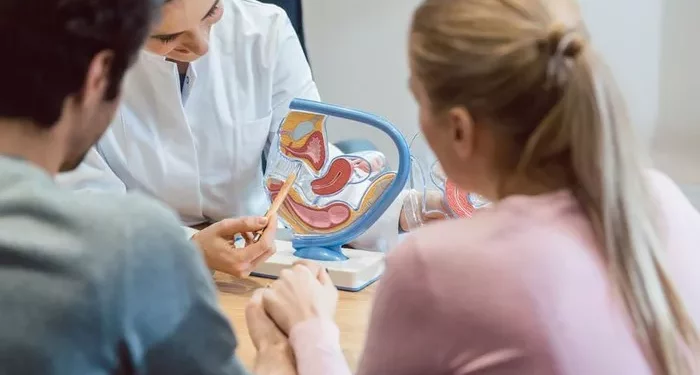Depression is a common mental health condition affecting millions of people worldwide. It can disrupt daily life, impact relationships, and, in many cases, require treatment through medication. Antidepressants are the most commonly prescribed treatment for managing the symptoms of depression. However, for individuals who are trying to conceive or are concerned about their reproductive health, the question often arises: Does depression medication cause infertility?
In this article, we will explore the relationship between depression medications and infertility. We will look at different classes of antidepressants, their impact on both male and female fertility, and consider whether these medications could potentially interfere with the ability to conceive.
Understanding Depression Medications
Types of Antidepressants
Depression medications come in several different classes, each working in unique ways to alleviate the symptoms of depression. The most common types of antidepressants include:
Selective Serotonin Reuptake Inhibitors (SSRIs): These are the most commonly prescribed antidepressants. They work by increasing serotonin levels in the brain, which improves mood and emotional regulation. Examples include fluoxetine (Prozac), sertraline (Zoloft), and escitalopram (Lexapro).
Serotonin-Norepinephrine Reuptake Inhibitors (SNRIs): These medications increase the levels of both serotonin and norepinephrine in the brain, which can help improve mood and energy levels. Examples include venlafaxine (Effexor) and duloxetine (Cymbalta).
Tricyclic Antidepressants (TCAs): These older medications are less commonly used today due to their side effects. They affect multiple neurotransmitters, including serotonin and norepinephrine. Examples include amitriptyline and nortriptyline.
Monoamine Oxidase Inhibitors (MAOIs): These medications work by inhibiting the enzyme monoamine oxidase, which breaks down neurotransmitters like serotonin, dopamine, and norepinephrine. Due to potential side effects and dietary restrictions, they are typically used only when other treatments have failed. Examples include phenelzine (Nardil) and tranylcypromine (Parnate).
While these medications help manage the symptoms of depression, many individuals, particularly those of reproductive age, worry about whether they may affect fertility.
How Depression Medications Affect Fertility
The Impact of SSRIs on Female Fertility
SSRIs are among the most widely used antidepressants. Many women of reproductive age take SSRIs to manage depression or anxiety disorders. While SSRIs are considered safe for long-term use, there has been concern about their potential impact on fertility.
Ovulation and Hormonal Balance
Some studies have suggested that SSRIs may interfere with a woman’s hormonal balance, which is essential for normal ovulation and reproductive health. Ovulation depends on the complex interplay of hormones such as estrogen, progesterone, and luteinizing hormone (LH). In rare cases, SSRIs have been reported to delay or inhibit ovulation, making it harder for women to conceive.
In addition, serotonin plays a role in regulating the menstrual cycle, and medications that alter serotonin levels may affect the timing and regularity of menstrual cycles. While this does not mean that all women taking SSRIs will experience fertility problems, it highlights the importance of monitoring menstrual health while on these medications.
Effects on Sexual Function
SSRIs are well known to cause sexual side effects in many individuals, including women. Common side effects include reduced libido, difficulty achieving orgasm, and decreased sexual satisfaction. While these side effects do not directly cause infertility, they can indirectly affect a woman’s ability to conceive by reducing the frequency of sexual intercourse.
For couples trying to conceive, regular sexual activity is essential. If SSRIs are causing significant sexual dysfunction, it may reduce the likelihood of conception over time.
The Impact of SSRIs on Male Fertility
Men who take SSRIs may also experience changes that could affect their fertility. Depression itself can cause problems with sexual function, but the medications used to treat depression may also contribute to these issues.
Sperm Quality and Function
Some studies have suggested that SSRIs may have an impact on sperm quality. For example, certain SSRIs have been linked to reduced sperm motility (the ability of sperm to move), which can make it more difficult for sperm to reach and fertilize an egg. In some cases, SSRIs may also reduce sperm count, although this effect is usually temporary and reversible upon discontinuation of the medication.
The mechanism by which SSRIs affect sperm is not entirely clear, but it is believed that changes in serotonin levels could disrupt normal reproductive function. While not all men on SSRIs will experience fertility problems, it is important for men who are concerned about their fertility to discuss these potential effects with their healthcare provider.
Sexual Dysfunction
Similar to women, men taking SSRIs often experience sexual side effects. These may include reduced libido, erectile dysfunction, and difficulty ejaculating. These issues can significantly reduce the frequency of sexual activity, thereby affecting the chances of conception. Additionally, delayed ejaculation, a common side effect of SSRIs, can reduce the effectiveness of timed intercourse when trying to conceive.
Other Classes of Antidepressants and Fertility
SNRIs and Fertility
SNRIs, like SSRIs, are often prescribed to treat depression and anxiety disorders. The impact of SNRIs on fertility is less well studied than that of SSRIs, but similar concerns exist. SNRIs can cause sexual dysfunction in both men and women, including reduced libido and delayed orgasm, which may indirectly affect fertility by reducing sexual activity.
Some reports suggest that SNRIs, like SSRIs, may impact sperm quality in men, although more research is needed to determine the extent of this effect. Women taking SNRIs should be aware of the potential for hormonal disruptions, although these are generally rare.
TCAs and Fertility
Tricyclic antidepressants (TCAs) are older medications and are less commonly prescribed today. TCAs are known to have significant side effects, including weight gain, dry mouth, and drowsiness. However, the impact of TCAs on fertility is not well documented.
As with other antidepressants, TCAs can cause sexual dysfunction in both men and women, which may reduce sexual activity and indirectly affect fertility. Additionally, TCAs can interfere with the body’s hormonal balance, potentially disrupting ovulation in women and sperm production in men.
MAOIs and Fertility
Monoamine oxidase inhibitors (MAOIs) are another older class of antidepressants. These medications are rarely used today due to their side effects and interactions with certain foods and medications. There is limited research on the effects of MAOIs on fertility, but it is known that these medications can cause sexual dysfunction, particularly in men.
While the direct impact of MAOIs on fertility is unclear, individuals taking these medications should be cautious and discuss any reproductive health concerns with their doctor.
see also: Does Removing Endometriosis Improve Egg Quality
Does Depression Itself Affect Fertility?
It is also important to consider that depression itself can have a significant impact on fertility, independent of the medications used to treat it. Depression can cause hormonal imbalances, disrupt the menstrual cycle, and affect overall reproductive health. For men, depression can reduce testosterone levels, leading to problems with sperm production and sexual function.
In addition, depression can lead to unhealthy lifestyle habits such as smoking, excessive alcohol use, and poor diet, all of which can negatively impact fertility. Therefore, for individuals with depression, treating the underlying mental health condition is essential for improving both physical and reproductive health.
Balancing Treatment and Fertility
For individuals concerned about the impact of depression medications on fertility, it is important to find a balance between managing mental health and preserving reproductive health. Discontinuing or changing medications without medical guidance is not recommended, as untreated depression can have serious consequences.
Consulting a Healthcare Provider
If you are trying to conceive and are concerned about how depression medications may affect your fertility, the first step is to consult with your healthcare provider. A doctor can help evaluate the risks and benefits of continuing your current medication and may suggest alternative treatments if necessary. For example, some individuals may benefit from switching to a different class of antidepressants with fewer sexual side effects, or exploring non-pharmacological treatments such as therapy or lifestyle changes.
Monitoring Fertility While on Medication
For individuals taking antidepressants who are trying to conceive, it may be helpful to monitor fertility with the help of a healthcare provider. Regular monitoring of ovulation and sperm health can help determine whether medication is having an impact on reproductive function. If fertility issues are detected, adjustments to treatment may be made to improve the chances of conception.
Conclusion
While depression medications, particularly SSRIs, may have some impact on fertility, they do not generally cause permanent infertility. The most common concern is the potential for sexual dysfunction, which can reduce the likelihood of conception by affecting the frequency of sexual activity. In rare cases, certain medications may interfere with ovulation or sperm quality, but these effects are usually reversible when the medication is discontinued.
Related topics:



























